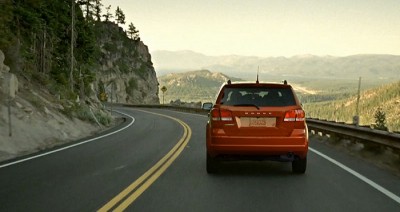A variety of law enforcement agencies are using license plate readers not only to record images of car tags but also to capture detailed pictures of passengers, new documents acquired by the American Civil Liberties Union indicate.
The images are then shared with the federal Drug Enforcement Agency (DEA). The technology takes and stores images of passengers, no matter if they are innocent or suspected of a crime, and virtually allows the tracking of citizens, the ACLU charges.
The technology can be extremely invasive. In 2012, a California man named Michael Katz-Lacabe requested to see images that were stored in a local law enforcement database and was shocked to discover one of him and his two daughters getting out of his car – in his driveway. The picture likely was taken by a camera mounted on a patrol car.
“Law enforcement is already using license plates to identify and track people — photographs of car occupants only allow agencies to be even more sure of exactly who they are surveilling,” the ACLU said. “… Tracking movement and saving individuals’ photos is particularly worrisome if the DEA is targeting First Amendment-protected activity.”
Learn How To Become Invisible In Today’s Surveillance State!
For example, the ACLU argued, an investigation at a gun show could result in monitoring and photographing law-abiding citizens. The taking of photographs of people is far more invasive than recording data from license plates, the organization added.
“An automatic license plate reader cannot distinguish between people transporting illegal guns and those transporting legal guns, or no guns at all; it only documents the presence of any car driving to the event,” the ACLU said. “A photo of a car’s occupants, however, documents much more — and intensifies our concerns about the targeted use of this technology. We don’t want to see someone’s photo entered into a facial recognition database simply because a person’s presence at a gun show (or any other gathering) is considered suspicion of illegal activity.”
The DEA system has the ability to take “up to 10 photos per vehicle transaction including 4 occupant photos,” the DEA documents state.
Local police agencies use automated license plate reader (APLR) technology to take pictures of vehicles, the people inside them and the plates, a DEA document provided to the ACLU states. That imagery is then sent to the DEA, which shares it with other agencies.
Story continues below the video
“The National LPR Initiative is a program designed to combine DEA and other law enforcement database cap abilities with new technology to identify and interdict conveyances being utilized to transport bulk cash, drugs, weapons, as well as other illegal contraband,” a copy of an email the ACLU obtained through the Freedom of Information Act states. “The system is designed to de-conflict as well as provide immediate tactical cueing and strategic cap abilities.”
Tracking Cars all Over the Country
The ACLU charged that the DEA is creating a database of driver images from all over the country.
“These records do, however, offer documentation that this program is a major DEA initiative that has the potential to track our movements around the country,” an ACLU press release stated. “With its jurisdiction and its finances, the federal government is uniquely positioned to create a centralized repository of all drivers’ movements across the country — and the DEA seems to be moving toward doing just that.”
In addition to collecting data from local agencies, the DEA may have 100 or more license plate readers of its own deployed on highways across the country, a Power Point presentation obtained by the ACLU shows.
Other federal agencies, including Customs and Border Patrol (CBP), which monitors the Mexican and Canadian border crossings, are also sharing license plate data with the DEA, a Memorandum of Understand obtained by the DEA revealed.
Do you believe the storing of innocent citizens’ pictures is a good thing, as long as the “bad guys” are caught? Share your thoughts in the section below:
You’re Being Watched: 7 Sneaky Ways The Government Is Tracking Your Every Move. Read More Here.
 Off The Grid News Better Ideas For Off The Grid Living
Off The Grid News Better Ideas For Off The Grid Living




